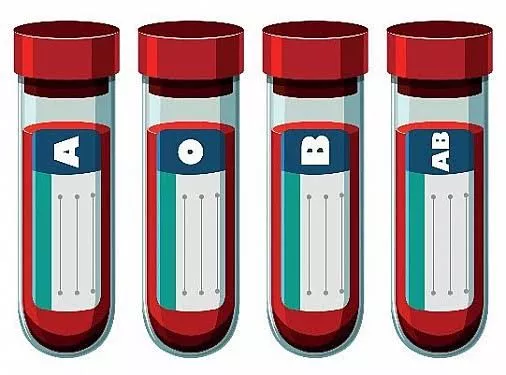![What your blood type can tell you about your health [HellaLife] What your blood type can tell you about your health [HellaLife]](https://static.netnaija.com/i/qXNEQOLeNlE.webp)
Your blood type can actually put you at a higher risk for some conditions.
The blood type is more than just a letter and a plus or minus sign; it can be an indicator of certain health risks.
Understanding the connection between blood type and health can help you be more proactive about your well-being.
Here's what you need to know:
The basics of blood types
Blood types are determined by the presence or absence of certain antigens on the surface of red blood cells. These antigens are substances that can trigger an immune response if they are foreign to the body. The main blood types are A, B, AB, and O, and each can be positive or negative for the Rh factor, leading to eight possible blood types.
Blood type and disease risk
Research has found correlations between certain blood types and the risk of developing specific diseases:
Type O: Often considered the universal donor, individuals with type O blood have been found to have a lower risk of developing heart disease but may have a higher risk of ulcers due to the bacteria H. pylori. There's also a potential increased risk of bleeding and blood clotting issues.
Type A: People with type A blood might have a higher risk of developing coronary heart disease and stomach cancer, particularly if they consume large amounts of red meat. The reason could be linked to the immune system's response to dietary factors.
Type B: Those with type B blood may have a slightly higher risk of developing certain types of cancer, including pancreatic cancer. They could also be more susceptible to infections since their immune system may not respond as aggressively to pathogens.
Type AB: Individuals with AB blood type are at a higher risk for heart disease and blood clots. This group has the most significant risk of developing cardiovascular diseases due to their blood clotting properties and may also have an increased risk of stomach cancer.
Managing your health based on blood type
Knowing your blood type's associated risks can guide you in tailoring your health monitoring and lifestyle choices.
For example, if your blood type puts you at a higher risk for heart disease, regular cardiovascular screenings and a heart-healthy diet can be particularly important. Conversely, understanding that you're at a lower risk for certain conditions should not lead to complacency; a balanced diet and regular exercise are crucial for everyone.
The bottom line
While your blood type can influence your risk for certain health conditions, it's just one piece of the puzzle. Lifestyle factors, family history, and other medical conditions also come into play.
Knowing your blood type and its potential implications allows you to make informed decisions about your health care and lifestyle choices, but it should not be the sole factor guiding your health strategy.















Comments